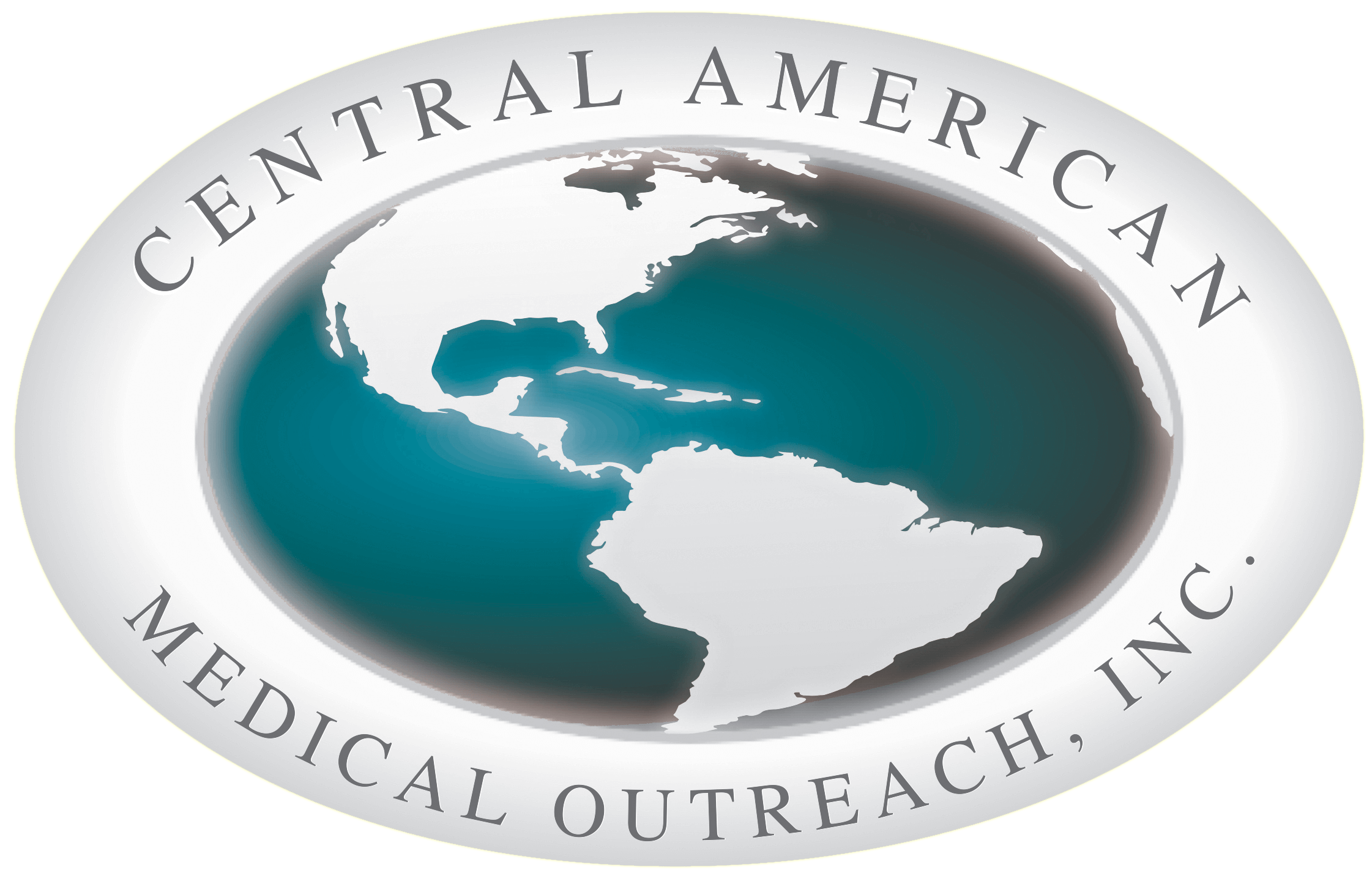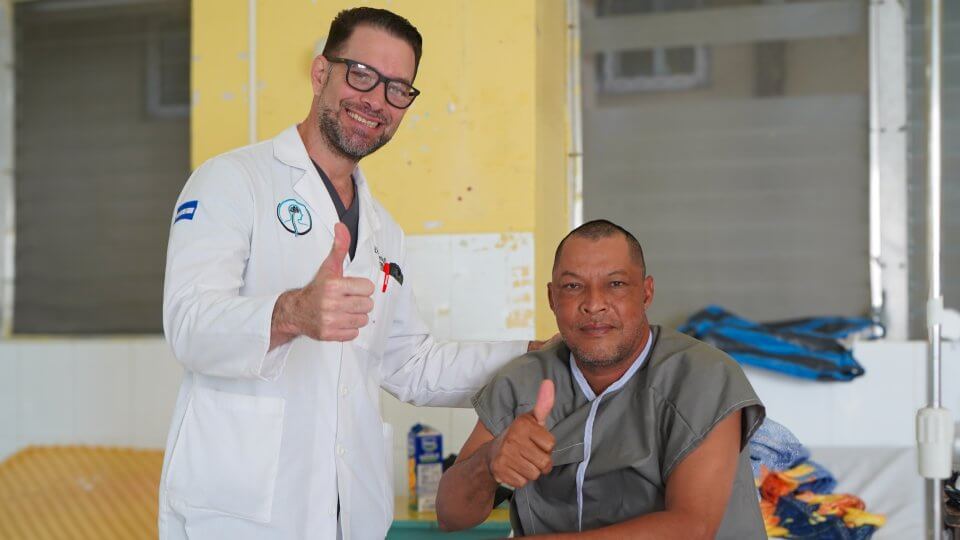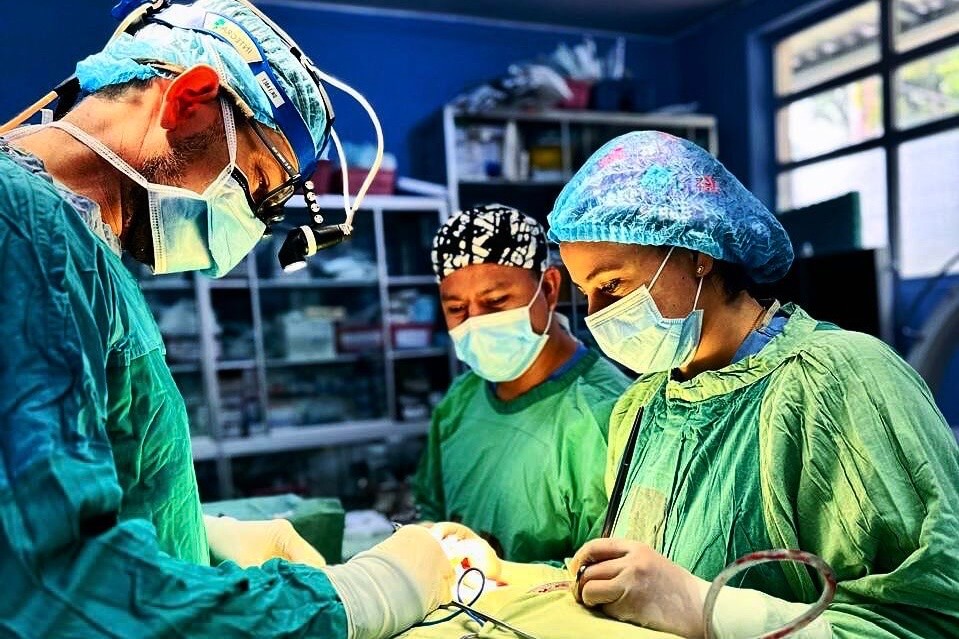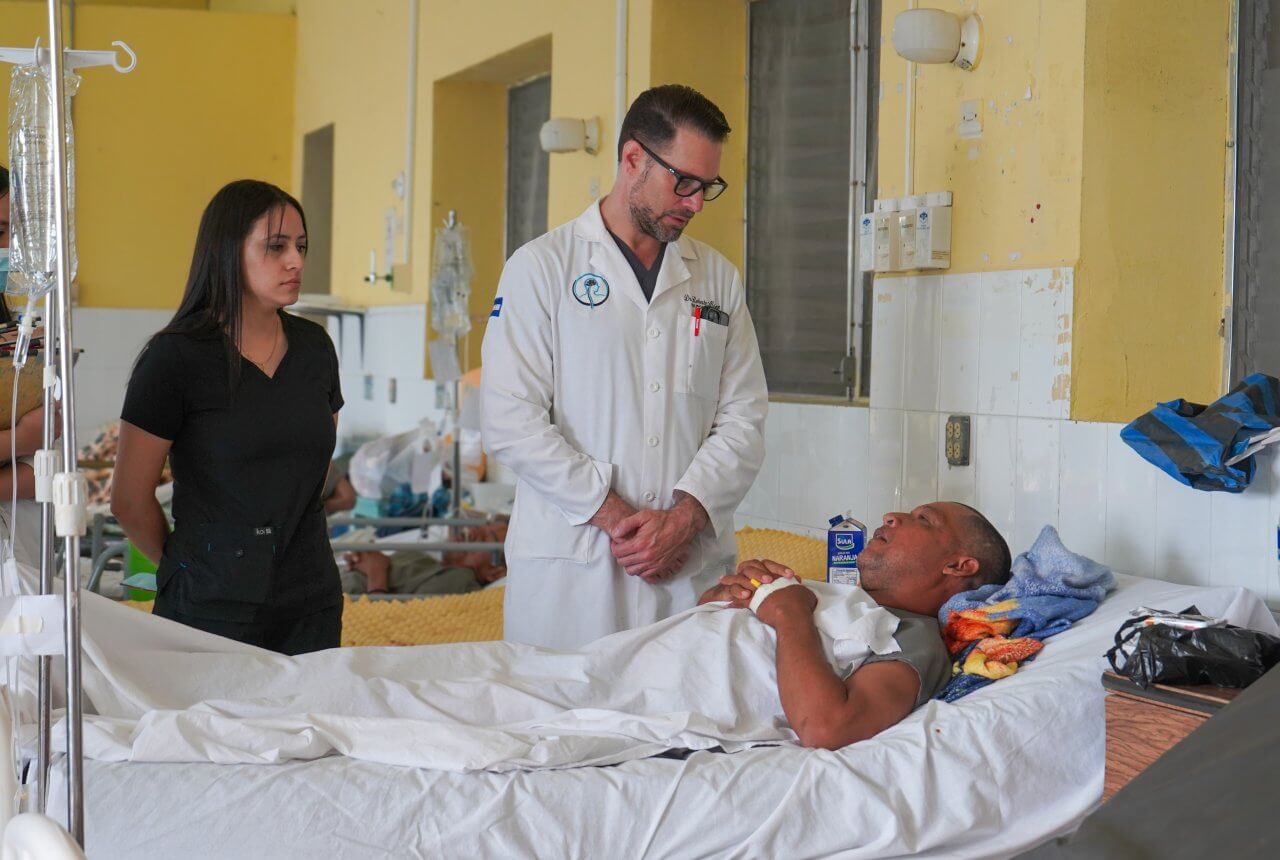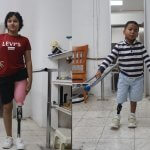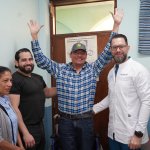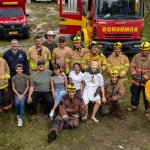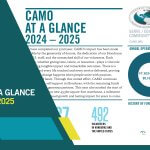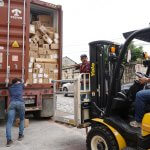From Bedridden to Back on the Fields: Santos’ Journey of Recovery
For two years, Santos Velásquez lived with the anguish of being unable to support his wife and three children. A cervical hernia left him immobile, forcing him to spend months bedridden.
Although he had been suffering for a while, his condition worsened at the beginning of this year.
“I started feeling pain in my left leg, lost the strength to get up, and the pain spread to my back. It felt like a constant burning sensation. When I walked, my leg would go numb, and my back felt like it was on fire. I couldn’t get up again,” Santos recalled.
Santos, a farmer from Yoro in northern Honduras, sought medical attention at a public hospital in San Pedro Sula, where he was diagnosed with three herniated discs in his spine.
“They told me I couldn’t do any physical labor, and as a farmer, I wondered how I would provide for my family,” he said.
His family transported him for more than six hours from Yoro to CAMO’s headquarters in Santa Rosa de Copán to receive assistance.
Neurosurgeon Roberto Álvarez, leader of CAMO’s Neurosurgery Program in collaboration with the Honduran Ministry of Health and the Hospital de Occidente, explained that Santos underwent surgery as part of the spinal surgery brigade due to the severity of his condition.
“We became aware of Santos’ case thanks to CAMO’s Spinal Surgery Brigade announcements.
Despite the pain and the long journey from Yoro, he made a tremendous effort to get here.
His hernia was critical, and he couldn’t wait for the international brigade, so we managed his emergency admission and operated on him outside the brigade’s schedule, even though he is part of it,” Álvarez explained.
Since the announcement of the international brigade, at least 30 people have come to CAMO for evaluations, hoping to be operated on by the American doctors and their Honduran colleagues, who will arrive on October 19. Patient selection will begin on October 20.
Dr. Álvarez added that they are receiving patients from all over the country, many of whom have not been able to access surgery at other hospitals and live with constant pain.
“I’m overjoyed because I arrived unable to walk, and now I’m going home walking. I hope that once I recover, I will be able to go back to working in the corn and bean fields and provide food for my family,” Santos said enthusiastically.
Santos is deeply grateful to CAMO, the doctors, and the staff at the Hospital de Occidente. “Here, they treated me with dignity. The doctors and nurses saw me as an equal, and at CAMO, I made friends despite the short time I spent in Santa Rosa de Copán,” he concluded.
